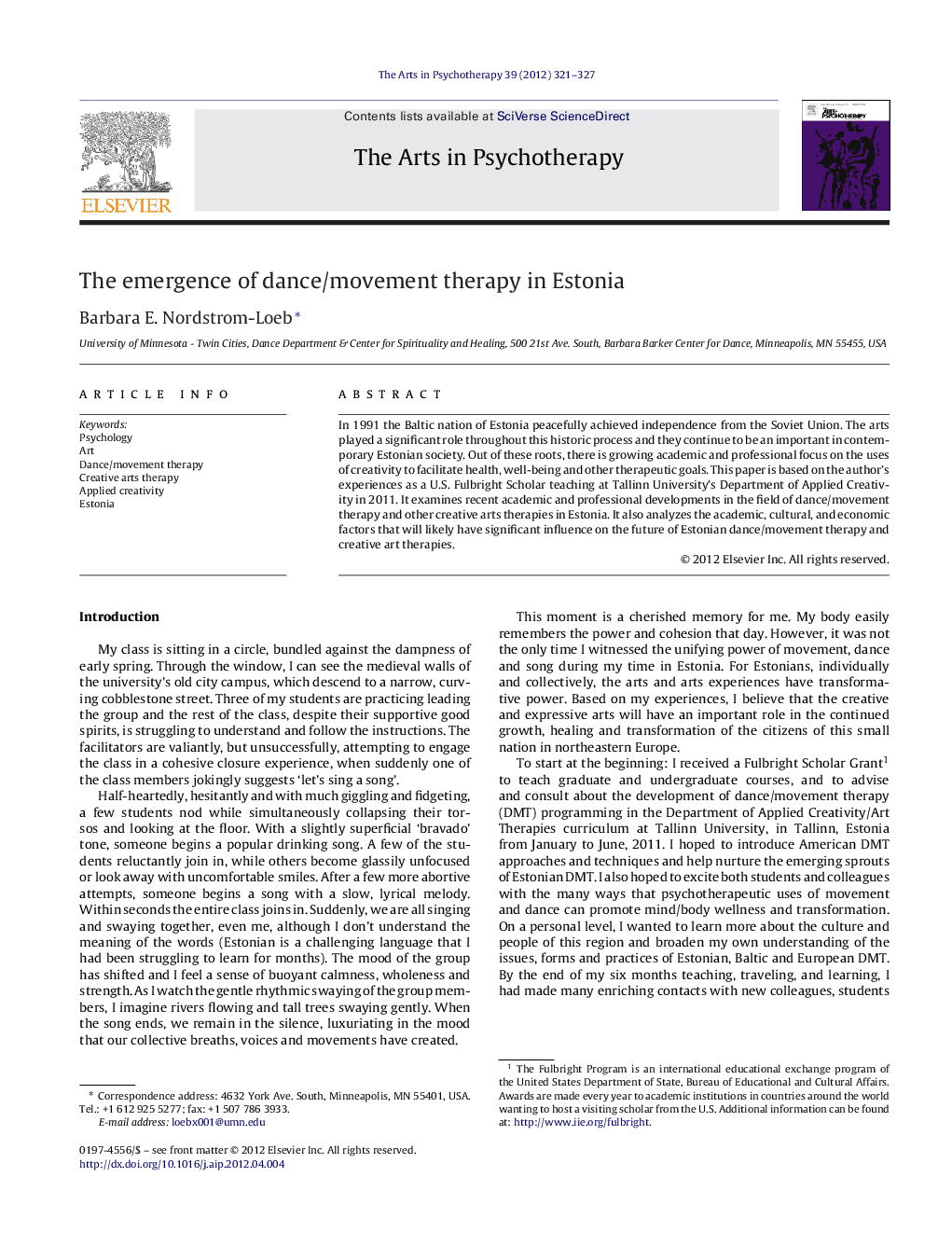| Article ID | Journal | Published Year | Pages | File Type |
|---|---|---|---|---|
| 343791 | The Arts in Psychotherapy | 2012 | 7 Pages |
In 1991 the Baltic nation of Estonia peacefully achieved independence from the Soviet Union. The arts played a significant role throughout this historic process and they continue to be an important in contemporary Estonian society. Out of these roots, there is growing academic and professional focus on the uses of creativity to facilitate health, well-being and other therapeutic goals. This paper is based on the author's experiences as a U.S. Fulbright Scholar teaching at Tallinn University's Department of Applied Creativity in 2011. It examines recent academic and professional developments in the field of dance/movement therapy and other creative arts therapies in Estonia. It also analyzes the academic, cultural, and economic factors that will likely have significant influence on the future of Estonian dance/movement therapy and creative art therapies.
► I discuss the growth of the creative arts therapies and dance/movement therapy in Estonia. ► I discuss the history of dance/movement therapy education at Tallinn University. ► I analyze specific academic, historic, and cultural factors that will impact the growth of this field, including: academic issues, attitudes toward creativity, psychology, changing gender roles, economic factors, and employment opportunities.
